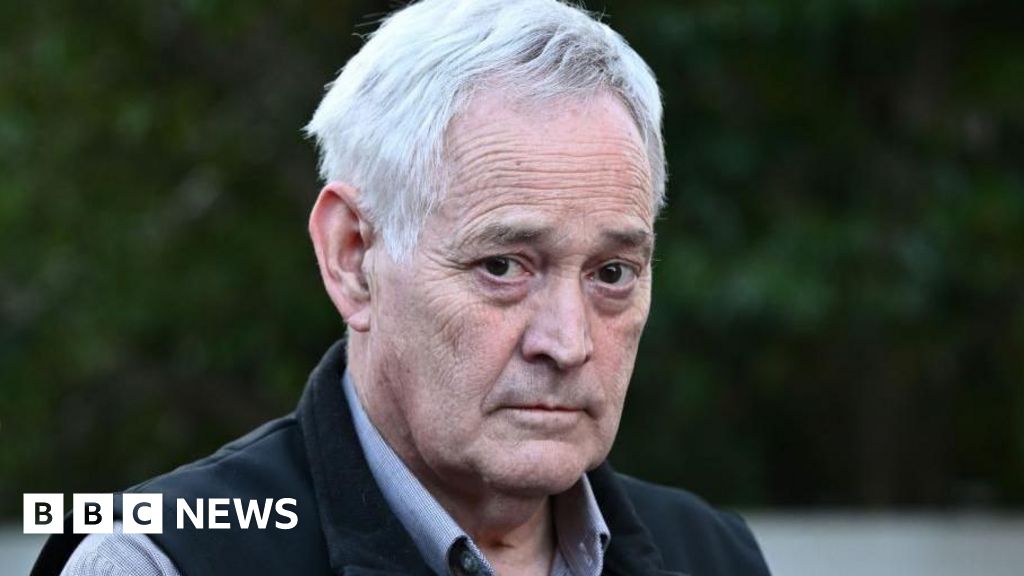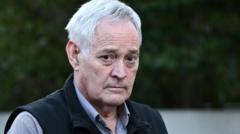In the tranquil setting of the Caribbean island of Antigua, a sinister trend emerges as more residents vanish without a trace, leaving families shattered and desperate for answers. Six years after the disappearance of 74-year-old Hyacinth Gage, her daughter Patricia Joseph still searches for closure, recalling the day her mother went missing after a routine hospital visit. Despite extensive searches and inquiries, Patricia is left haunted by unanswered questions and painful memories.
Hyacinth's case is alarmingly part of a larger crisis on the island; at least nine people have disappeared in the last two years alone, marking a worrying increase in such incidents in a locale with fewer than 100,000 residents. While neighboring islands report significantly lower numbers of missing persons, the upbeat façade of Antigua hides a growing concern about the safety of its inhabitants.
Community members, including Patricia, have taken it upon themselves to investigate, conducting searches and collecting information through leads that often seem to lead nowhere. "We became detectives," Patricia explains, highlighting the frustration faced by families who feel let down by local law enforcement. "The police got angry at us for investigating," she adds, reflecting on the toll of sustained search efforts.
As local fears grow around disappearances, speculation regarding the reasons ranges from inadequate police resources to alarming theories of organized crime, including organ trafficking. This unease has been further amplified by a recent tragic case involving the murder of a nine-year-old girl, which has ignited public outrage and protests, demanding greater accountability from authorities and a more comprehensive investigation strategy.
Antigua's Acting Police Commissioner, Everton Jeffers, admits there’s “room for improvement” in police-community relations, yet emphasizes the need for careful examination before jumping to conclusions about the motives behind the disappearances. There are calls for enhanced inter-agency cooperation and the introduction of advanced forensic tools, which the local police lack due to budget constraints.
The demand for action is echoing throughout the community, with families calling for the establishment of a dedicated missing persons task force and increased investment in investigative resources. The recent pledge from the government to implement changes, including trained cadaver dogs, is met with cautious optimism. Yet for many who have lost loved ones, these measures come too late.
As Patricia Joseph continues her search for her mother, she warns, "This isn't a random thing anymore; this is serious, there's a crisis." The pain and suffering of Antigua’s missing persons’ families are reminders of the need for urgent action, before more lives are lost to the shadows of uncertainty. The call for accountability and better investigative practices grows more urgent as each day passes, and the community holds its breath, hoping for answers that seem to be perpetually out of reach.
Hyacinth's case is alarmingly part of a larger crisis on the island; at least nine people have disappeared in the last two years alone, marking a worrying increase in such incidents in a locale with fewer than 100,000 residents. While neighboring islands report significantly lower numbers of missing persons, the upbeat façade of Antigua hides a growing concern about the safety of its inhabitants.
Community members, including Patricia, have taken it upon themselves to investigate, conducting searches and collecting information through leads that often seem to lead nowhere. "We became detectives," Patricia explains, highlighting the frustration faced by families who feel let down by local law enforcement. "The police got angry at us for investigating," she adds, reflecting on the toll of sustained search efforts.
As local fears grow around disappearances, speculation regarding the reasons ranges from inadequate police resources to alarming theories of organized crime, including organ trafficking. This unease has been further amplified by a recent tragic case involving the murder of a nine-year-old girl, which has ignited public outrage and protests, demanding greater accountability from authorities and a more comprehensive investigation strategy.
Antigua's Acting Police Commissioner, Everton Jeffers, admits there’s “room for improvement” in police-community relations, yet emphasizes the need for careful examination before jumping to conclusions about the motives behind the disappearances. There are calls for enhanced inter-agency cooperation and the introduction of advanced forensic tools, which the local police lack due to budget constraints.
The demand for action is echoing throughout the community, with families calling for the establishment of a dedicated missing persons task force and increased investment in investigative resources. The recent pledge from the government to implement changes, including trained cadaver dogs, is met with cautious optimism. Yet for many who have lost loved ones, these measures come too late.
As Patricia Joseph continues her search for her mother, she warns, "This isn't a random thing anymore; this is serious, there's a crisis." The pain and suffering of Antigua’s missing persons’ families are reminders of the need for urgent action, before more lives are lost to the shadows of uncertainty. The call for accountability and better investigative practices grows more urgent as each day passes, and the community holds its breath, hoping for answers that seem to be perpetually out of reach.




















